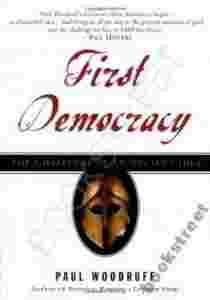|
Americans have an unwavering faith in democracy and
are ever eager to import it to nations around the world.
But how democratic is our own ''democracy''? If you can
vote, if the majority rules, if you have elected
representatives--does this automatically mean that you
have a democracy? In this eye-opening look at an ideal
that we all take for granted, classical scholar Paul
Woodruff offers some surprising answers to these
questions. Drawing on classical literature, philosophy,
and history--with many intriguing passages from
Sophocles, Aesop, and Plato, among others--Woodruff
immerses us in the world of ancient Athens to uncover
how the democratic impulse first came to life. The heart
of the book isolates seven conditions that are the sine
qua non of democracy: freedom from tyranny (including
the tyranny of majority rule), harmony (the blending of
different views), the rule of law, natural equality,
citizen wisdom, reasoning without knowledge, and general
education. He concludes that a true democracy must be
willing to invite everyone to join in government. It
must respect the rule of law so strongly that even the
government is not above the law.True democracy must be
mature enough to accept changes that come from the
people. And it must be willing to pay the price of
education for thoughtful citizenship. Ancient Athens
didn't always live up to these ideals. Nor does modern
America. If we learn anything from the story of Athens,
Woodruff concludes, it should be this--never lose sight
of the ideals of democracy. This compact, eloquent book
illuminates these ideals and lights the way as we
struggle to keep democracy alive at home and around the
world. |
|

